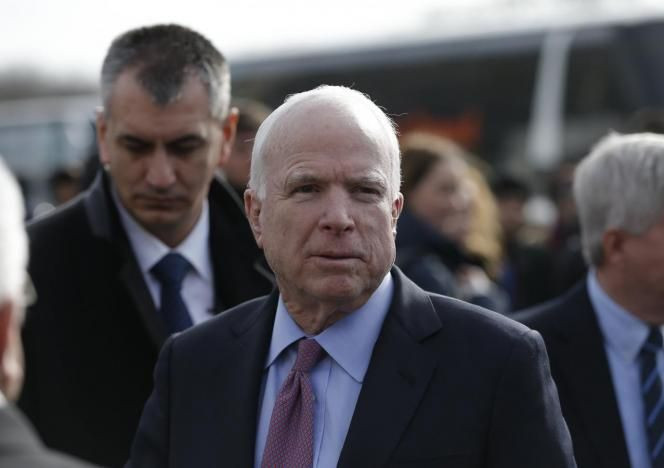Will John McCain Win His Senate Seat? Arizona Republican In Danger If Hillary Clinton Has Strong Show Against Trump In Red State

While most of the country will be following election results for pivotal swing states like Florida, Ohio and North Carolina, there has been stronger attention in recent days on Arizona. The typically right-leaning state is expected to be watched closely not only because of surprisingly tight polls between Donald Trump and Hillary Clinton, but because of Sen. John McCain's tenuous bid for a sixth term.
Trump is expected to win Arizona's 11 electoral votes after former Republican nominees Mitt Romney, McCain and George W. Bush winning it in four consecutive elections. Democratic nominees have consistently pulled 44 percent of the vote in the last four elections.
But the tide might be turning in 2016 for a variety of reasons.
In October, the Arizona Republic, the state's largest newspaper, endorsed a Democrat for the first time in its history while heaping multiple not-so-subtle rips on Trump
"Trump responds to criticism with the petulance of verbal spit wads," the 128-year-old publication wrote. It cited his lack of legitimate conservative credentials and Clinton's strong human rights stance.
Meanwhile, Latinos, perhaps buoyed by Trump's hard-line stance on immigration, are expected to come out in record force and there has already been strong early voter turnout.
The polls also show a tight race. Though the last five surveys have shown Trump leading by as much as 5 points, two October polls showed Clinton leading, and one had the election tied, in a four-way race, according to data compiled by Real Clear Politics.
McCain might also be in trouble because of Trump. In May, Politico found a recording of McCain at a private fundraiser fretting about his chances against Democratic challenger Rep. Ann Kirkpatrick.
“If Donald Trump is at the top of the ticket, here in Arizona, with over 30 percent of the vote being the Hispanic vote, no doubt that this may be the race of my life,” McCain said. “If you listen or watch Hispanic media in the state and in the country, you will see that it is all anti-Trump. The Hispanic community is roused and angry in a way that I've never seen in 30 years.”
Indeed, the big question facing McCain is whether Latinos voting against Trump will switch party lines and vote for him. According to polls, he seems to be safe, with some polls showing him leading Kirkpatrick by as much as 16 points.
It may have helped that he took back his endorsement of Trump following lewd comments about women recorded by "Access Hollywood."
“I thought it important I respect the fact that Donald Trump won a majority of the delegates by the rules our party set,” McCain said in a statement. “But Donald Trump’s behavior this week, concluding with the disclosure of his demeaning comments about women and his boasts about sexual assaults, make it impossible to continue to offer even conditional support for his candidacy.”
However, some may feel that McCain waited too long to rescind his endorsement. Trump had previously stated that McCain was "a war hero because he was captured," and that he likes "people that weren't captured." Trump had also been embroiled in a verbal fight between the parents of a Muslim American soldier killed in Iraq, as McCain rushed to thank the parents for their son's service.
McCain has also seen his landslide victories trim in recent elections. After winning in 2004 with 76.7 percent of the vote, he received 58.7 percent in 2010 against a Tucson city councilman.
Kirkpatrick is a formidable challenger. She has won her U.S. House seat in three out of four elections.
© Copyright IBTimes 2025. All rights reserved.






















